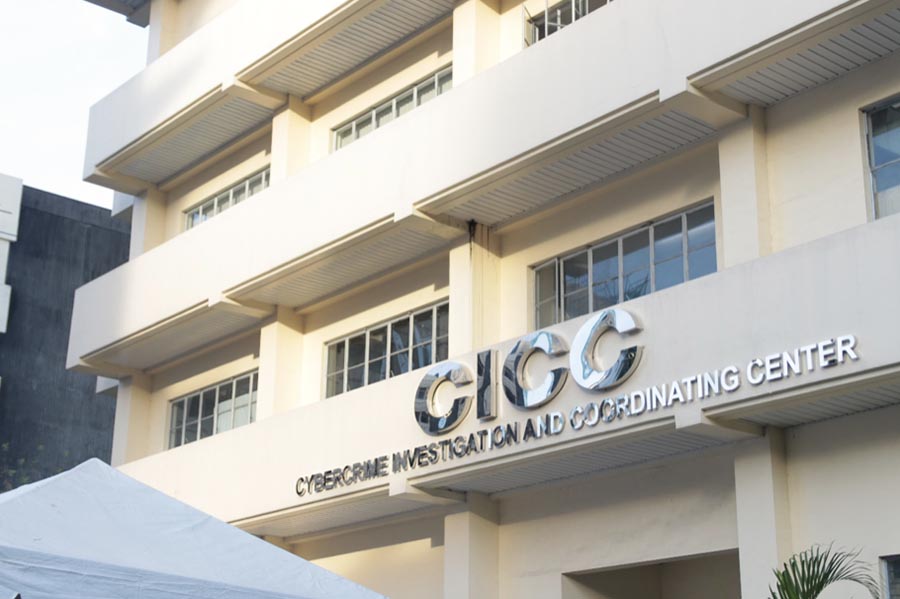
The Cybercrime Investigation and Coordinating Center (CICC) unveils the latest and state-of-the-art Digital Forensics Platform and Laboratory (DFPAL). DFPAL will be an important tool of the government’s fight against the rising cybercrimes, especially, Online Sexual Abuse and Exploitation of Children (OSAEC). This cybercrime laboratory is located at CICC’s headquarters in Quezon City.
“The opening of DFPAL will allow the CICC to monitor and coordinate with other law enforcement agencies in conducting thorough digital and forensic investigations and assist them in prosecuting cybercriminals nationwide,” says CICC Executive Director Cezar O. Mancao II.
One of the goals of the CICC is to address the problem of OSAEC. “The CICC’s DFPAL was established and operationalized to conduct relentless, coordinated efforts to prevent, disrupt, and possibly stop if not mitigate the issues of OSAEC through the collaborative partnership of local and international stakeholders towards providing a cybersafe environment for children,” says Mancao. “We have acquired a powerful state-of-the-art technology, which will improve the success rates of investigators and policing operations in the ongoing pursuit to identify, apprehend, and convict individuals and networks associated with online child sexual exploitation,” he adds. The DFPAL will be manned by trained and certified professionals from various fields such as information and communications technology, psychology, digital forensics, data analytics, research, and communications that would provide vital support to the operations of the CICC.
The CICC was created by virtue of Republic Act 10175, also known as the Cybercrime Prevention Act of 2012, for policy coordination among concerned agencies. It is one of the attached agencies of the Department of Information and Communications Technology (DICT) tasked to lead the government’s efforts in the fight against cybercrimes, especially those victimizing the most vulnerable segment in society, our children.

PBGEN. Emmanuel B. Peralta, CICC Executive Director Usec. Cezar O. Mancao II, DICT Usec. Maria Victoria C. Castro, during the ribbon-cutting ceremony at the Inauguration of CICC Digital Forensics Platform and Laboratory (DFPAL).
The CICC has undertaken several programs, such as Child Online Safeguarding Policy (COSP), Cyber Patrol Program, Batang Barangay Capability Program, and the Cyber Conflict Program, among others. We are also part of the Inter-Agency Council Against Child Pornography (IACACP) and the Inter-Agency Council against Trafficking (IACAT).
“OSAEC is a tragic and growing problem in the Philippines, but it does not need to be a permanent one. We will do everything that we can to protect Filipino children. We have to act now and fight against these monster predators. We need to help each other to protect our netizens, says Mancao.”
Vulnerabilities of children
The COVID-19 pandemic aggravated the problem of online child exploitation involving child pornography and other forms of child online sexual abuse, specifically with children from low-income families. This has strengthened the resolve of the CICC for safer cyberspace. Mancao says, “To support this advocacy, we have child online protection programs and initiatives in partnership with various civil society organizations and many stakeholders.”
He explains that these crimes are borderless. The unprecedented access to the internet through computers and mobile phones has made children the most vulnerable segment to cybercrime. “These technologies are now embedded in their lives, our lives. With the DFPAL, the CICC will be better equipped to fight OSAEC,” adds Mancao.
DFPAL will serve as proof of President Rodrigo Roa Duterte’s commitment to fighting the threat of OSAEC. “This will serve as the President’s legacy in gathering all the resources of the government to address this threat affecting thousands of families,” adds Mancao. “The opening of this new facility will provide law enforcement agencies with updated data and intelligence that can lead to the arrest and prosecution of these predators.”
To report a cybercrime against children, you can call our helplines, 09666524885, 09206260217, or via email at [email protected]. You may also reach out to our institutional partners, the NBI-Cybercrime Division (nbi.gov.ph or at (877) 624-7707), PNP – Anti-Cybercrime Group (acg.pnp.gov.ph or at 0998 598 8116), and DOJ – Office of Cybercrime ((+632) 523 8482).
![]()







